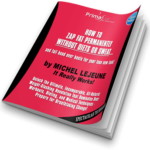Emotional eating is a common struggle that many people face. It’s the act of turning to food as a way to cope with difficult emotions, stress, or boredom. The cycle of emotional eating can be relentless, leading to guilt and regret. But what if there was a way to break free from this cycle? In this blog, we will explore the powerful concept of self-compassion and how it can be a vital tool in stopping emotional eating. We will delve deep into the steps and strategies on how to practice self-compassion effectively, along with mindful self-care practices that can help you to a healthier relationship with food and emotions.
What is Emotional Eating?
 Emotional eating refers to eating in response to emotions rather than physical hunger.
Emotional eating refers to eating in response to emotions rather than physical hunger.
It’s essential to recognize that this behavior is not merely a lack of willpower but often a result of complex emotional triggers.
Understanding these triggers is the first step toward change.
Emotional eating can stem from various causes, including stress, anxiety, sadness, boredom, and even happiness.
It’s a way to numb or enhance emotions temporarily, but it often leads to negative consequences in the long run.
By identifying the specific emotions that trigger your desire to eat, you can begin to address this issue more effectively.
The Cycle of Emotional Eating
Emotional eating often follows a predictable pattern: you experience an emotion (e.g., stress, sadness, anxiety) that triggers cravings for specific foods.
You indulge in these cravings, but you may feel guilty or regretful afterward, perpetuating the cycle.
This cycle can be challenging to break, but it’s not impossible.
What Is Self-Compassion?
 Self-compassion is treating yourself with kindness and understanding, just as you would treat a close friend.
Self-compassion is treating yourself with kindness and understanding, just as you would treat a close friend.
It involves acknowledging your suffering without judgment.
Unlike self-esteem, which is based on evaluation and comparison, self-compassion is unconditional and doesn’t rely on achievement or external validation.
Benefits of Practicing Self-Compassion
 Practicing self-compassion can have a profound impact on your emotional well-being and your relationship with food.
Practicing self-compassion can have a profound impact on your emotional well-being and your relationship with food.
By cultivating self-compassion, you can
1. Break the Cycle of Emotional Eating: Self-compassion can help you interrupt the cycle of emotional eating by reducing feelings of shame and guilt.
Treating yourself with kindness makes you less likely to turn to food as a coping mechanism.
2. Enhance Emotional Well-Being: Self-compassion allows you to cope with difficult emotions more healthily, decreasing the need to turn to food for comfort.
When you are kind to yourself, you are better equipped to address the root causes of your emotional distress.
Building Self-Compassion
1. Self-Kindness
 Begin by treating yourself as you would a close friend.
Begin by treating yourself as you would a close friend.
When you make a mistake or experience emotional distress, practice self-kindness rather than self-criticism.
Instead of criticizing yourself for overindulging, acknowledge that you were trying to cope with challenging emotions.
2. Common Humanity
 Understand that you are not alone in your struggles.
Understand that you are not alone in your struggles.
Everyone experiences difficult emotions and setbacks.
Recognizing your shared humanity can reduce feelings of isolation, making it easier to extend self-compassion to yourself.
3. Mindfulness
 Stay in the present moment and avoid over-identifying with your emotions.
Stay in the present moment and avoid over-identifying with your emotions.
Mindfulness can help you observe your thoughts and feelings without judgment, making it easier to respond with self-compassion.
You can address your emotional triggers more effectively by becoming more aware of them.
How to Practice Self-Compassion and Stop Emotional Eating
Identifying Emotional Triggers
To stop emotional eating, it’s crucial to identify the emotional triggers that lead to unhealthy eating habits.
Keeping a journal can be an effective tool for recognizing patterns and understanding your emotions better.
1. Journaling
 Keep a diary of your emotional experiences and eating habits.
Keep a diary of your emotional experiences and eating habits.
Whenever you find yourself turning to food, make a note of the emotion you were feeling at the time.
Over time, patterns may emerge that can help you identify specific triggers.
2. Emotion Tracking
![]() Develop a system for rating the intensity of your emotions when you experience them.
Develop a system for rating the intensity of your emotions when you experience them.
This can help you distinguish between mild, moderate, and severe emotional states, making it easier to identify which emotions are more likely to lead to emotional eating.
Developing Healthy Coping Mechanisms
1. Mindful Eating
When you eat, do it with awareness and intention.
Pay attention to the flavors, textures, and sensations of each bite.
This mindfulness can help you enjoy your food more and eat more consciously.
2. Stress-Reduction Techniques
Incorporate stress-reduction practices into your daily routine.
Deep breathing exercises, meditation, and mindfulness can help manage stress and reduce emotional eating.
3. Mindful Self-Care Practices
How to practice self-compassion extends to self-care.
Engage in activities that nurture your physical and emotional well-being, such as relaxing baths, practicing yoga, or indulging in your favorite hobbies.
4. Seeking Support
Don’t hesitate to contact friends, family, or a therapist.
Sharing your struggles and seeking support can be crucial to your journey toward self-compassion and overcoming emotional eating.
Creating a Self-Compassionate Environment
Surround yourself with positivity and self-care.
Set realistic goals and expectations for yourself, and remember that setbacks are a natural part of the process.
Be patient and forgiving toward yourself.
Dealing with Setbacks
 Acknowledging setbacks as a natural part of overcoming emotional eating is essential.
Acknowledging setbacks as a natural part of overcoming emotional eating is essential.
When you stumble, avoid self-criticism and instead embrace self-compassion, recognizing that everyone experiences moments of weakness.
Learn from your mistakes by using setbacks as opportunities for growth.
Reflect on the triggers behind emotional eating and how to cope with those emotions in the future.
Replace self-criticism with self-compassionate self-talk when facing setbacks, reassuring yourself that it’s normal to have challenging moments and reaffirming your commitment to learning and improvement.
Avoiding Self-Criticism
 To silence your inner critic and foster self-compassion, employ positive self-talk, affirmations, and mindfulness techniques.
To silence your inner critic and foster self-compassion, employ positive self-talk, affirmations, and mindfulness techniques.
First, develop a set of positive affirmations, serving as reminders of your worth, dedication to self-compassion, and capacity for change to counter negative self-perceptions.
Second, regular mindfulness meditation heightens awareness of your thought patterns.
When self-criticism surfaces, acknowledge it without judgment and gently redirect your thoughts toward self-compassion, fostering a healthier mindset.
Tracking Your Success
 Celebrate small victories as you recognize and acknowledge your progress in practicing self-compassion and curbing emotional eating.
Celebrate small victories as you recognize and acknowledge your progress in practicing self-compassion and curbing emotional eating.
Reflect on how your emotional eating patterns have evolved.
Create a success journal to document milestones and positive changes, using it as a motivational source and a reminder of your journey’s distance.
Additionally, incorporate visual reminders like a vision board filled with inspiring images and quotes or daily phone reminders that promote self-compassion, reinforcing your path to wellness.
Adjusting and Adapting
 It’s crucial to adapt to evolving needs to maintain flexibility in your self-compassion practices.
It’s crucial to adapt to evolving needs to maintain flexibility in your self-compassion practices.
Regular self-check-ins are essential; assess your journey for emerging triggers and discover resonant techniques.
Seek guidance from a therapist if progress is challenging, as they can offer valuable support on your path to overcoming emotional eating.
Stay open to adjustments and self-care refinements as you progress toward self-compassion.
Conclusion
In conclusion, learning to practice self-compassion is a powerful tool for breaking free from the cycle of emotional eating.
Treating yourself with kindness and understanding can improve your emotional well-being and develop healthier coping mechanisms.
Remember that it’s a journey, and setbacks are part of the process. Embrace self-compassion, and don’t be too hard on yourself.
With time and dedication, you can stop emotional eating and enjoy a more balanced and fulfilling relationship with food and emotions.
Start your journey towards self-compassion today, and you’ll be amazed at the positive changes it can bring to your life.
Integrating self-compassion into your daily routine allows you to find peace with your emotions and create a healthy relationship with food.
Are you tired of the relentless cycle of emotional eating, seeking comfort in food when dealing with challenging emotions?
In this blog, we've explored the transformative concept of self-compassion, a vital tool in breaking free from emotional eating.
But what if there was a way to supercharge your journey towards self-compassion and achieve even more remarkable results?
Introducing the PrimaJust weight loss method, a revolutionary approach that combines the power of self-compassion with proven techniques to help you shed 1-3 pounds per week naturally, without the need for diet or exercise.
Download our still free report and discover The Exact Method to Unlock Your Metabolism for All-Natural Weight Loss .
Start your transformative journey today and experience the positive changes that self-compassion and the PrimaJust method can bring to your life.
Click the link below to download the report and take the first step towards a healthier, happier you.
[Source]Free Report
If you found this blog post helpful, don’t forget to share it with others.
Discover new possibilities with these enlightening related blog posts
-
How to Overcome Emotional Eating: Break Free with Self-Compassion
Emotional eating, a common struggle many face, can significantly impact physical and mental health. The…
-
How to Overcome Emotional Eating: Empower Through Self-Care
Emotional eating, a phenomenon driven by the intertwining of feelings and food, can exert a…
-
How to Stop Emotional Eating From Stress Through Mindfulness
Emotional eating is a typical stress response, and it can significantly impact our physical and…
















